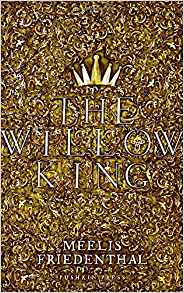The Willow King
The country of Estonia during the late 17th century is a place where science and the supernatural uneasily coexist. Laurentius Hylas, a young university student who studied at Leiden University in Holland, arrives in Revel, Estonia to study the latest research on bloodletting, observe local superstitions, and discuss with a well-known professor the position of the soul in the human body. Soon after Hylas’s arrival, his caged parakeet is taken from him and killed by a lunatic. He soon discovers an acrid stench, which it seems only he can smell, and which influences his ability to eat. Hylas also suffers from melancholy, which his parakeet tended to sooth. He meets an unusual young woman named Clodia (also the name of his dead parakeet) outside his rooms, a woman no one else seems to see or know. When Hylas journeys into the woods to cut bark for medicinal purposes from a willow tree, he is observed by the locals, who begin to suspect him of witchcraft. Hylas eventually uses the willow bark to help save the life of a local peasant girl.
I found this novel to be an unusual story, combining medieval superstition and supernatural sightings with in-depth discussions about the existence of a soul. The belief in the Willow King by the villagers adds to the confusion and conflict between science and the superstitions long held by the local populace. Translated into English by Matthew Hyde, this book won the EU Prize for Literature in 2013. This is a well-written tale containing elements of history, philosophy, and science fiction. I became sympathetic to the main character, a man suffering from melancholia while trying to scientifically understand what was happening to him.










